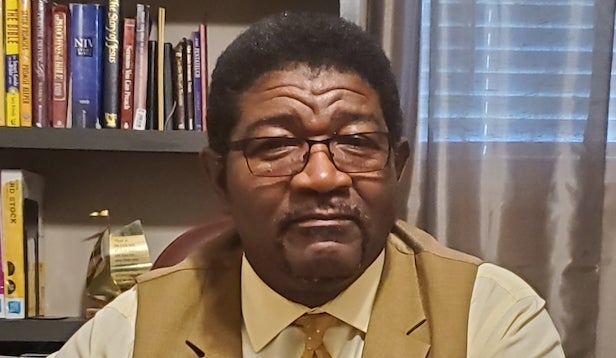God loves us even on our worst days
Published 12:10 pm Thursday, September 5, 2024
|
Getting your Trinity Audio player ready...
|
By Chris Adams
The things we hear as young people inevitably shape and mold our future adult selves. Hearing a certain phrase might bring us right back to our school days when the bullies ruled the playgrounds and made us constantly suffer.
Maybe a word from your partner sounds like something cutting your parents used to say, and your inner child hurts as strongly as you did those years ago. We might remember a few of the good things people said, but it’s much easier to focus on the bad. When we believe something terrible and untrue, we are damaged by that belief. Our inner life is ‘misshapen,’ and we often must work hard to heal and grow as adults.
This is also true of religion, perhaps especially true of religion. As religious children, we are given beliefs and ideas to believe as foundational and inescapable truths.
It’s difficult for a child to understand the complexities of religious dogma, so even in the most progressive religious communities, children will internalize the beliefs on a more primal and fundamental level. Knowing that what we hear as children will shape us for our entire lives and that religion often tells us what to believe as children, all this is fine if what religion teaches is something life-giving.
Yet so many of us know from personal experience that what we heard from our churches or faith communities was not life-giving. In some of the churches of my youth, the Christian Gospel was preached this way: “Human beings are so nasty, terrible, and wretched that a sacrifice needed to be made for our sins to prevent God’s wrath and anger from being poured out upon us. So, God’s only Son stepped in, and God was willing to watch his son be brutalized to save a still wretched but slightly better humanity.”
Week after week, I heard something like this preached by a man I was told to trust because he was a “man of God.” Every year on Good Friday, we were taught to focus on our individual sins and remember that our mistakes cost Jesus his life. As a truth-inclined child, I believed what our church told me. And what it told me is that I was terrible. It told me that I was broken and dirty. It told me that I was wretched. As a six-year-old, I was told to remember how my sins put Jesus on the cross. As a six-year-old, I was told that I was partly responsible for a good man’s murder.
I took this lesson with me into middle and high school, where I became slightly neurotic about doing the right thing and ensuring I wasn’t too wretched. It’s taken me a long time to untangle those terrible religious words I heard when I was so young and impressionable.
I’m not alone in this. So many in my church had similar experiences growing up. I bet many of you have experienced or are currently experiencing those kinds of religious truths being showered over you. These kinds of words aren’t playground insults that sting slightly when we hear them again. They’re worse even than words or phrases that remind us of the cruelty of our parents.
To believe that you are so wretched God’s anger should be kindled out upon you is to believe that you are less than nothing and that you have no internal worth and value. And, because it’s a truth ‘from God,’ there’s no hope of it being wrong.
So, what’s the Gospel that I preach today? It’s a Gospel rooted in the love and acceptance of Jesus of Nazareth. It’s the good news that whatever I think is broken about me doesn’t have to define me. It’s the good news that whatever mistakes or sins I make don’t have to define my past, present, or future. It’s the knowledge that I am loved beyond measure, and even on my worst days, God’s love for me is still overflowing.
You don’t have to share my religious convictions to find a way to give people good words or good news. Whatever you have to say, make it worthwhile, and decide that you’d rather build somebody up than tear them down.
Chris Adams is the Rector of St. Peter’s Episcopal Church in Washington.






